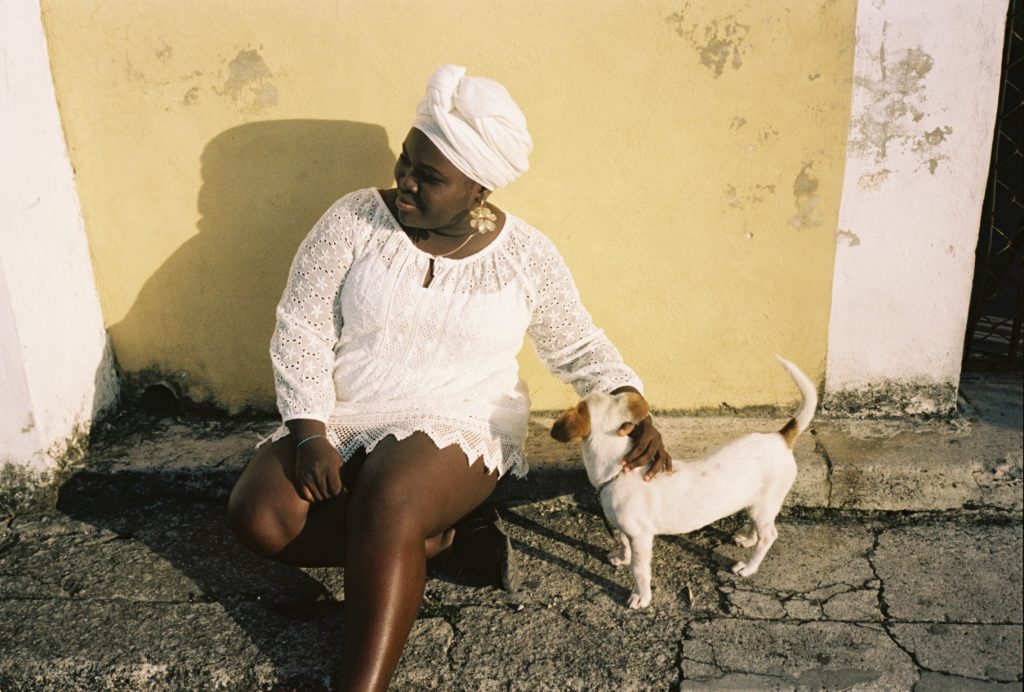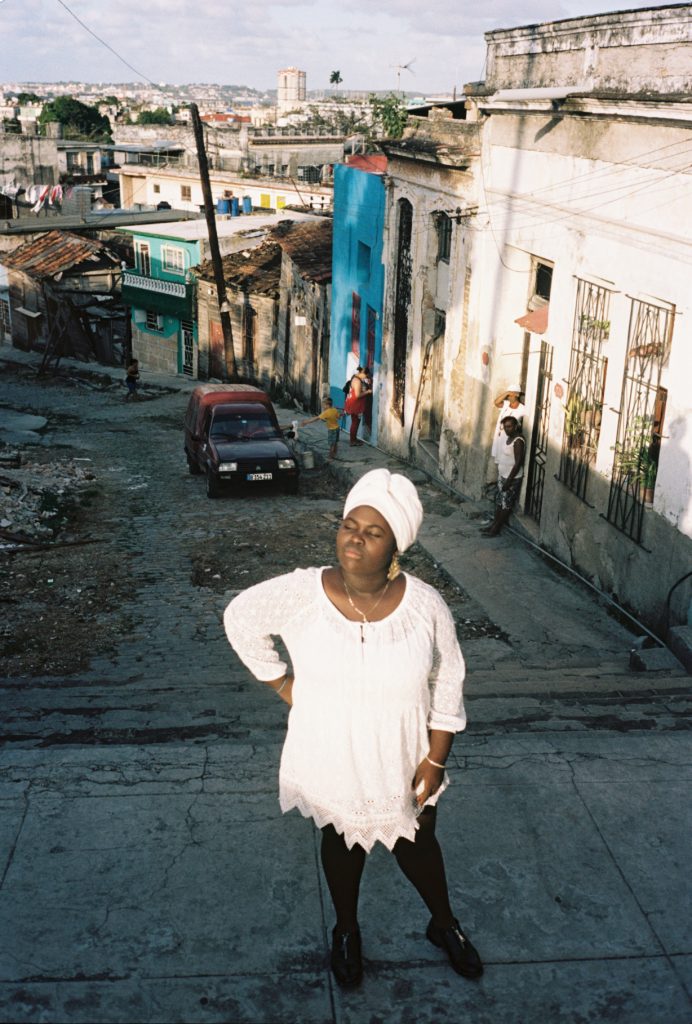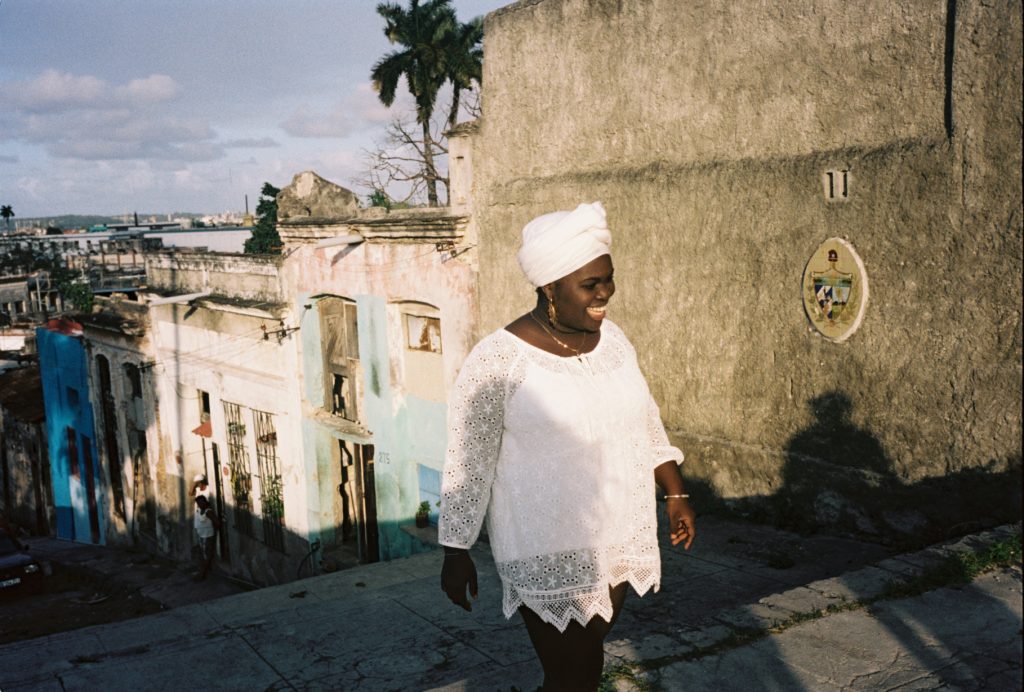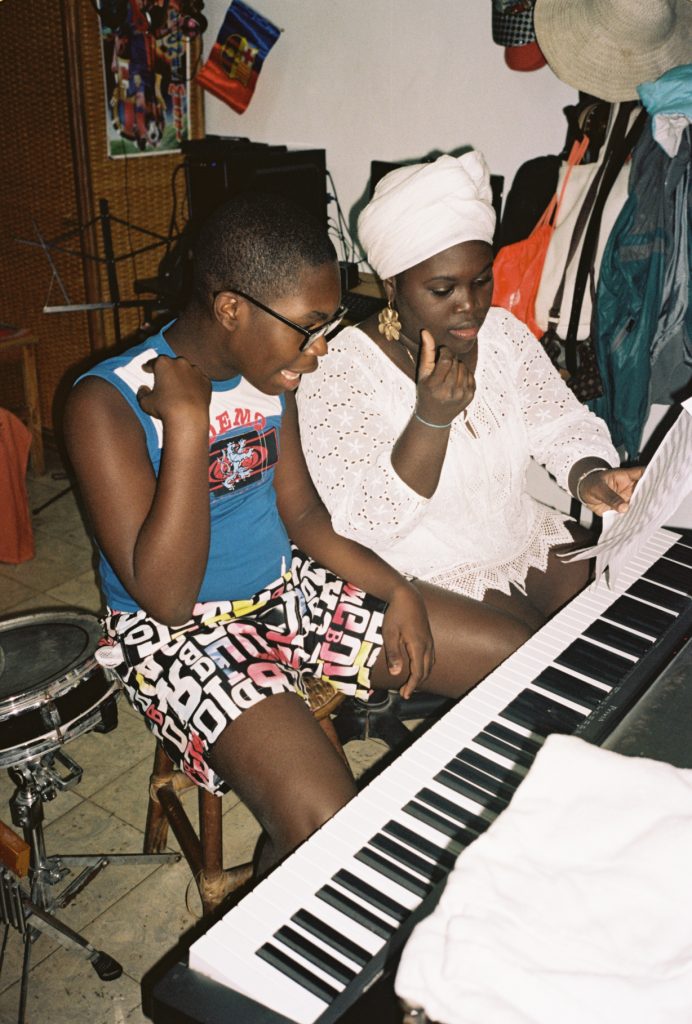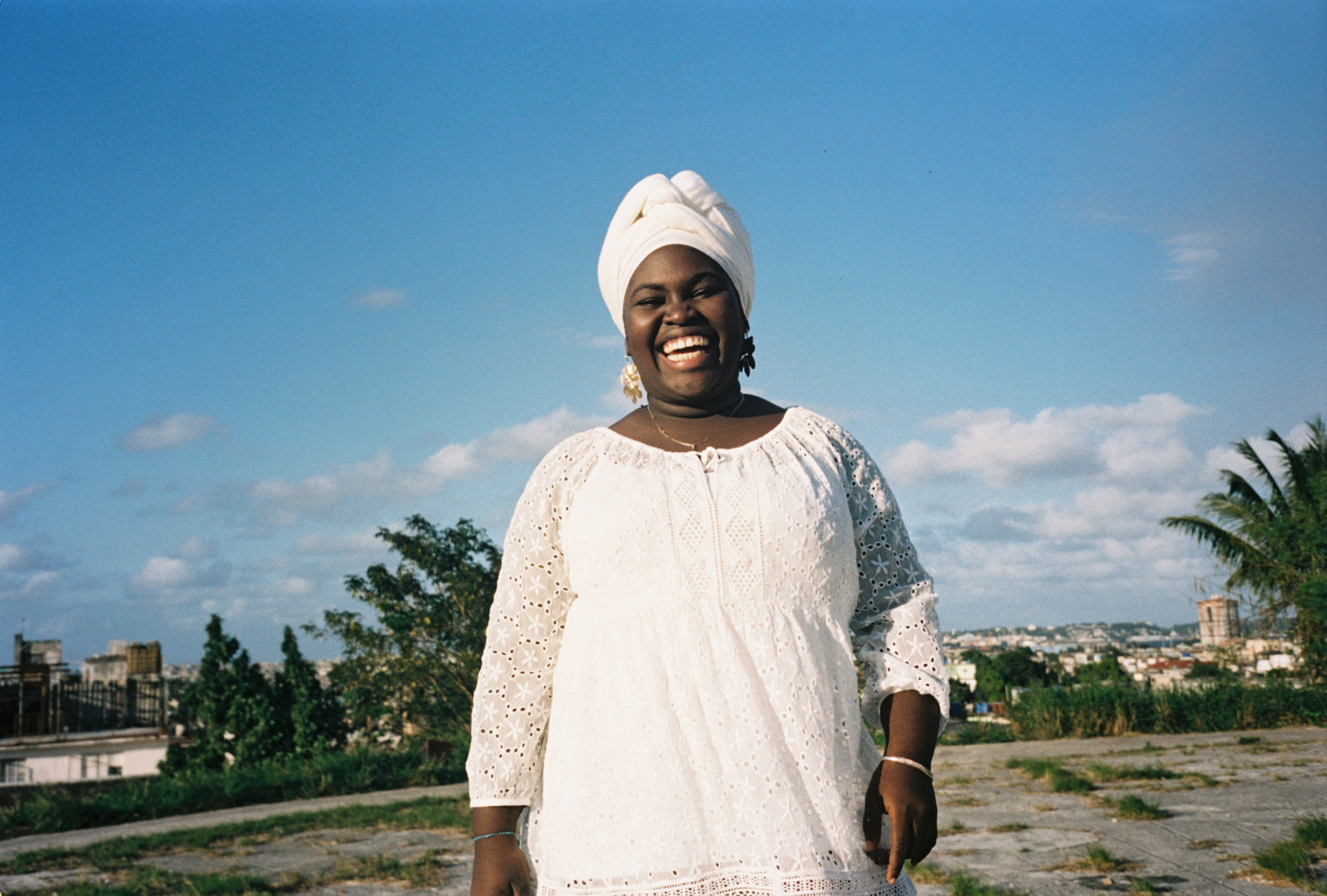
Photography by Nina Manandhar
There’s something about the way rhythms become spirits, moving from place to place in the hands, feet, mouths, and waists of people worlds apart. While our diasporas might be spread across continents, hundreds of languages and individual national identities both old and new, nestled deep in the grooves of son, zouk, reggae, samba, and jazz are the same collective notions of home.
Home can be complex. It can be many places at once or no place at all. For musicians like Daymé Arocena, it’s a feeling more than anything else. Arocena’s voice is tired but warm when she picks up the call. She’s just finished dinner, she tells me, after a long day of performances, workshops, and press stops. After a brief visit to her hometown of Havana, Cuba, the week before, she’d returned to her part-time home in London where her label Brownswood Recordings is based.
“When I first started touring going back to Cuba was like, ‘oh I’m going back home. So boring. Nothing to do’, but now I’m looking for the dates [in my schedule] to go back. Maybe because I’m getting older!” Arocena’s laugh is a genuine one, calming in its familiarity; like old friends catching up.
Like many artists before her, Arocena’s sentiments about belonging are tied up in her craft, something you can hear more than ever on her latest album Cubafonía. Her voice seems otherworldly, showing its dexterity over horns, the clave, and plenty of percussion to bring it all together. While the free-form spirit of Cuban jazz shows up in songs like ‘Lo Que Fue’, songs like ‘Cómo’ offer a glimpse of Daymé the contemporary R&B star – a much more polished take on the possibilities of her soaring voice.
“I love going around the world and seeing new places but the feeling of home is in Havana”
As one of jazz’s most dynamic voices, she’s had plenty of time and ability to make a home for herself in many places outside of Cuba, like her most recent four-year stint in Toronto as part of Maqueque, an award-winning band led by Canadian musician Jane Bunnett. Still, she’s never had any interest in leaving Havana behind completely. “I have what I want and what I need there. I love going around the world and seeing new places but the feeling of home is in Havana.”
Not only is Daymé’s music deeply rooted in her love of Cuba, but also in her spirituality as a practitioner of Santeria, a syncretic Afro-Cuban religion that blends Yorùbá deities and practices with Roman Catholicism. It’s a means of preservation, since enslaved Africans mainly from Nigeria, Benin, and Togo had to hide their reverence of ancestors and worship of divinities like Yemaya and Chango behind European saints. The religion may be part of her everyday life now, but her pathway to it originally came through music, where she found a kind of grounding she may not have found in reverse. “I fell in love first with Santeria music and I tried to understand it and study it for five years before I decided to become a practitioner,” she tells me. “It’s the base of my music because I was so drawn to the Bata drums, to the chants and all of those things.” These Yorùbá chants guide her music, with traditional calls to deities Eleggua, Oshun, and Yemaya showing up regularly alongside lyrics about love, loss, and forgiveness.
“Cuban culture functions like a soup: this island is like the boiling water, and people have added all kinds of things to it. Every slave and even those that colonised, they all added to it”
Cubafonía picks up where ‘Madres’ from her debut album left off, delving deeper into her relationships with her own saints. Though this connection is evident in every note she sings, Daymé tells me they run deepest when she’s asleep. “Those are the moments that I feel like my Saints are sending me messages. My relationship with them is musical.”
Cuban culture, which includes its preservation of West Africa’s musical legacy, functions much like a soup, Daymé tells me. “We call it Ajiaco,” she says of the hearty, broiling meat and starch-based mix . “This island is like the boiling water, and people have added all kinds of things to it. Every slave and even those that colonised, they all added to it.”
Arocena tells me she wants people to feel “modern Cuba” when they listen to her music; built on the existing musical foundations while incorporating plenty of funk, soul and pop – likely why so many place her between the influences of Aretha Franklin and Celia Cruz. Her own use of language hints at the mix as well, with plenty of Spanglish and Yorùbá peppering Cubafonía. While songs like ‘La Rumba Me Llamo Yo’ speak to this contemporary iteration of Cuban jazz, ‘Mambo Na’ Mà’ pulls from a distinctly New Orleans sound, playing perfectly together in a way that parallels the American city’s own blended culture with strong ties to West Africa.
“All the rhythms that are authentically Cuban come from the Bata drumming,” she explains to me. Son, the genre on which much of modern Cuban music is built, is specifically rooted in Afro-Cuban percussion. “Honestly? The music that has an African base is the most beautiful because it comes from the earth.” There’s nothing new about connecting with sounds in ways that call on the diaspora’s collective memory — we recognise our genealogical connection to rhythms even if we’ve never heard them before in the formal sense.
Music has always had the ability to bridge the gaps broken by time and migration, forging a sense of home in the absence of a unified identity. The familiarities we hear between everything from Afro-Cuban jazz to funk to dancehall are not mere coincidences, but the remnants of a diaspora borne of the same roots; creating brand new homes in the corners of the world we ended up, and both knowingly and unknowingly connected to the percussions, dips, and bass lines we’ve always known.
How, I wondered, could we have all remembered the same things? “That feeling of freedom. That feeling of colours. That feeling of sun and good weather on your body. That happiness?” Arocena explains. “You can go anywhere. You can go to Cuba, to Brazil, you can go to America and from Samba to Salsa – it’s going to be there.”
Daymé Arocena plays Primavera Sound, Barcelona, this Saturday, 1 June.
From gal-dem’s second print issue on the theme of home, published in 2017.

